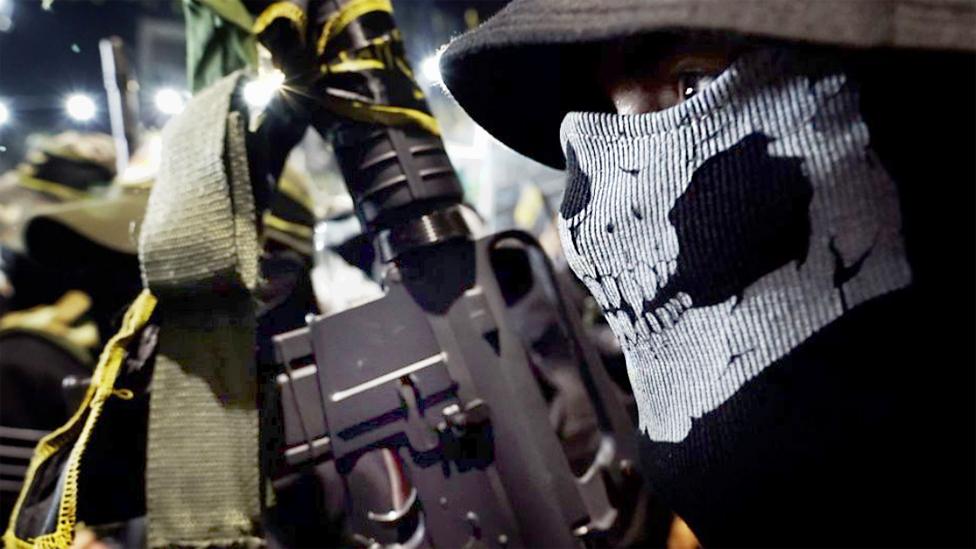West Bank pressures grow amid Israeli closures
- Published
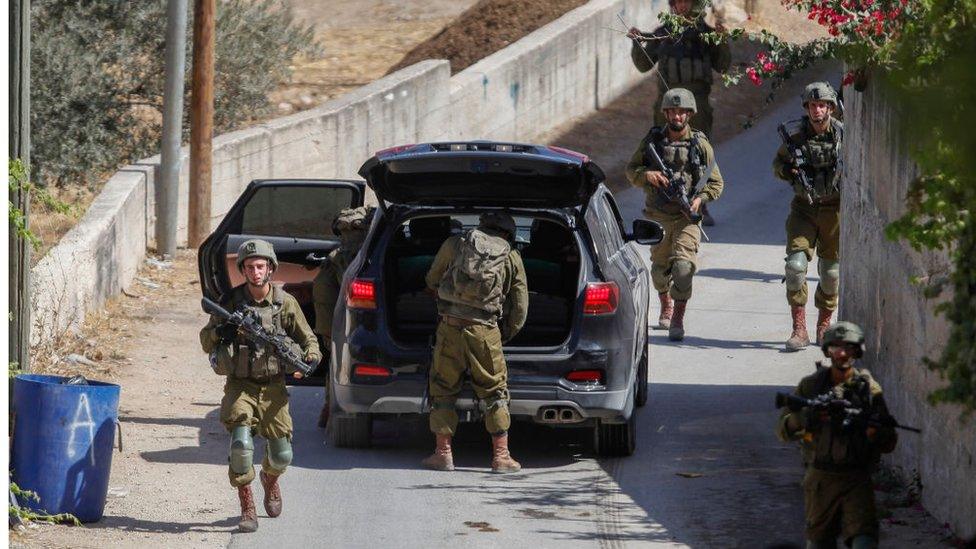
Israel has carried out security sweeps in the West Bank since a wave of Palestinian attacks earlier this year
Tens of thousands of Palestinians are being subjected to tight restrictions on movement by the Israeli military in parts of the occupied West Bank and East Jerusalem.
The closures are taking place amid a fresh wave in violence across the occupied territories.
In the last week, five Palestinian teenagers have been killed by the Israeli military and two Israeli soldiers have been shot dead by Palestinians.
Israel's security crackdown comes as it vows to continue a search for gunmen who killed the soldiers.
Meanwhile Palestinians say the heightened military closures amount to people in some areas being effectively "imprisoned".
Many residents of Shuafat - a huge refugee camp cut off from the rest of the city by Israel's separation barrier - have been unable to leave since Saturday night, when a Palestinian man armed with a pistol shot dead an 18-year-old Israeli soldier at a checkpoint.
Overnight confrontations broke out between the Israeli military and Palestinians amid new fears of a further escalation.
The UN's envoy to the region Tor Wennesland warned this week over a deteriorating security situation which was "fuelling a climate of fear, hatred and anger".
On Wednesday night Israeli forces fired tear gas and rubber bullets at Palestinian protesters who threw stones and petrol bombs in parts of East Jerusalem.
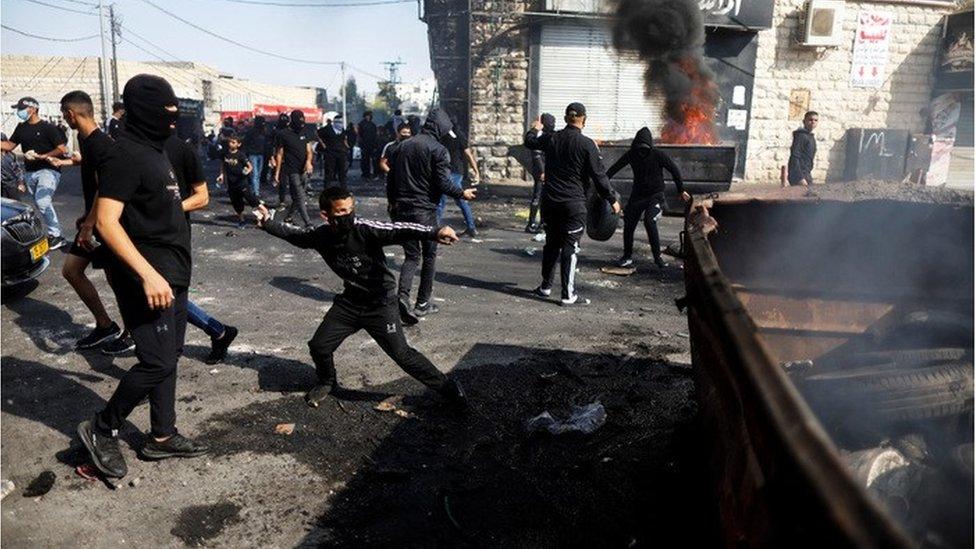
East Jerusalem has seen some of the worst violence for months
Several neighbourhoods saw a night of confrontation similar to those that broke out over several weeks in May last year, which partly fuelled a much bigger conflict.
In one area, masked Israelis reportedly threw stones at a mosque, and elsewhere police said Palestinians threw stones at a car containing a Jewish family.
In the West Bank town of Huwara, video showed masked Israeli settlers carrying sticks attacking Palestinian shops, while soldiers nearby appeared to do little to stop them.
'Nests of terrorism'
In Shuafat, Israeli security forces have been raiding homes searching for the gunman who carried out Saturday's attack, with the area largely blockaded for six consecutive days.
Medhat Debeh, a Palestinian lawyer who lives in the camp, described huge queues of traffic trying to get out on Thursday. He claimed a limited reopening in the morning was a show to appease foreign diplomats.
"There are people suffering from diseases that have relapsed because they were prevented from receiving the necessary treatment," he told the BBC.
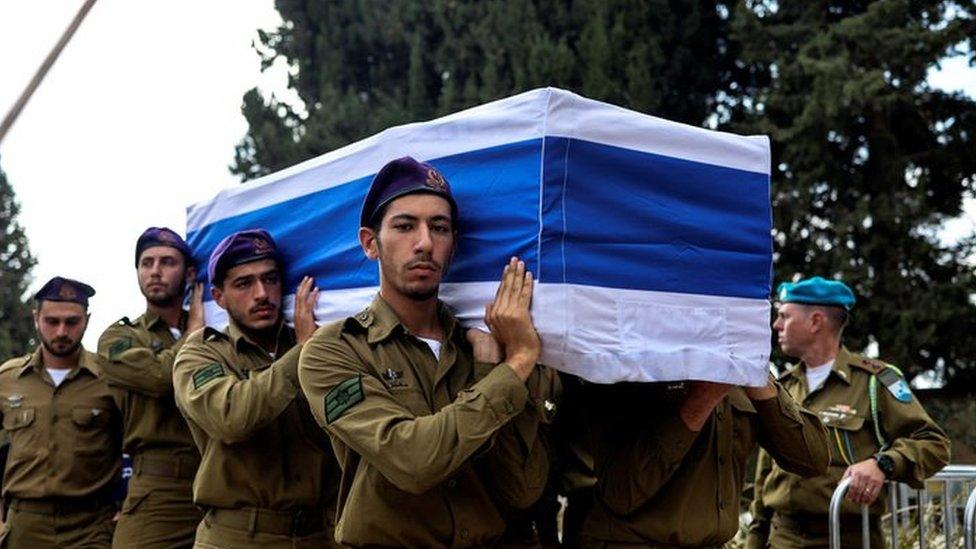
Two Israeli soldiers have been killed in attacks this week
On Wednesday Israeli Defence Minister Benny Gantz said the military would expand its operations to find those who killed the soldiers.
"We will get our hands on the terrorists and those who sent them, and we will dismantle the "nests of terrorism", he said.
On Wednesday the Palestinian health ministry announced the death of an 18-year-old Palestinian shot by Israeli forces in al-Aroub refugee camp near the city of Hebron.
The army said it opened fire at Palestinians throwing stones at cars, but didn't say why it was necessary to use lethal force to stop this.
Earlier this week, an Israeli soldier was shot dead by a Palestinian gunman near a Jewish settlement near the city of Nablus.
Spiralling toll
There has been growing violence in the north of the West Bank this year amid Israeli military raids and a collapse in security control by the Palestinian Authority (PA) which has limited powers to govern Palestinian cities.
Israeli forces on Thursday continued to close roads into Nablus, while severe restrictions on movement have also been reported for Palestinians in the nearby town of Huwara. A witness told the BBC of hours-long queues to pass checkpoints in the area.
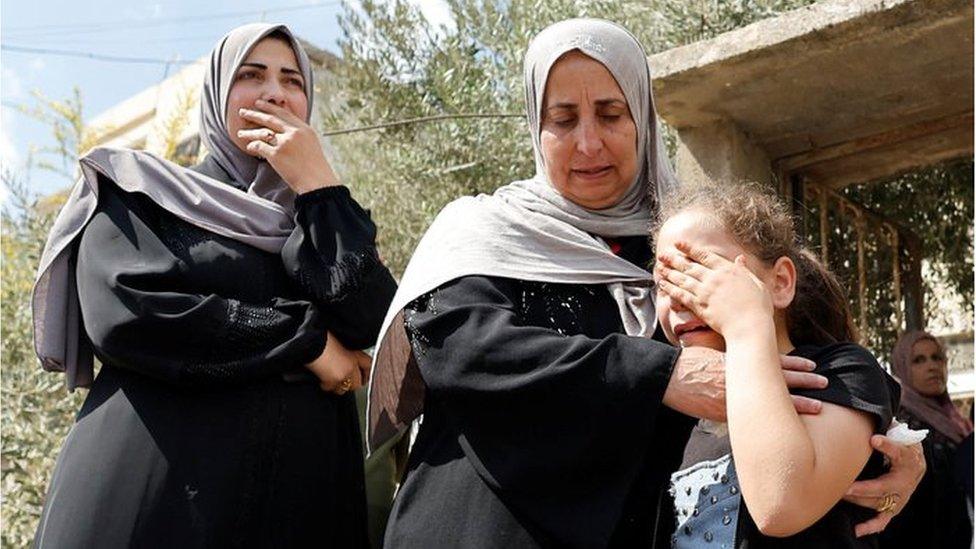
The Palestinian death toll in the West Bank is the highest for years
On 7 and 8 October, Israeli forces killed four Palestinian teenagers during a series of incidents in the West Bank within 24 hours. They included a 14-year-old boy shot dead near the separation barrier. The army claimed soldiers had fired at a Palestinian who threw petrol bombs at them.
On Monday, a 12-year-old Palestinian boy died of his wounds after being shot during an Israeli raid in Jenin in September.
This year more than 100 Palestinians have been killed in the West Bank amid a massive increase in Israeli military search and arrest raids, following a deadly wave of violence by Palestinians targeting Israelis that killed 18 people in the Spring.
- Published1 October 2022
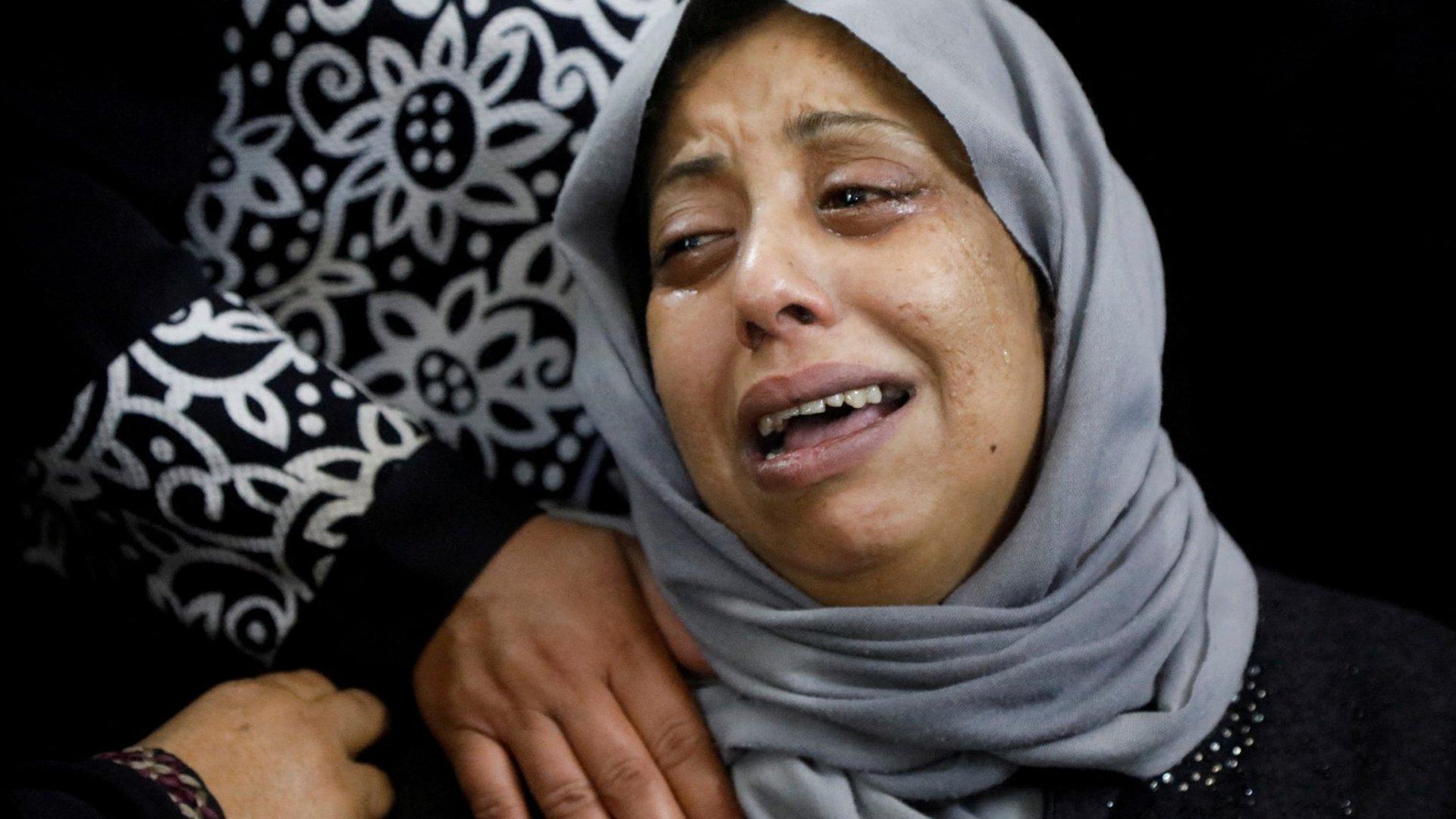
- Published12 July 2022
